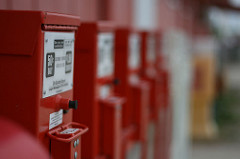Social media has changed the way we communicate. It allows us to create and share more information, more quickly and more conveniently, than ever before. But it also allows the spread of misinformation and fake news. This guide provides tips for how to identify fake news, and where to access real news.
The infographic below offers strategies for identifying fake news. It is produced by the International Federation of Library Associations and Institutions (IFLA).


Image Source: "Truth-Newspaper-News-Printed-Text" by PDPics is licensed under CC0
The following is a short summary of Professor Melissa “Mish” Zimdar’s False, Misleading, Clickbait-y, and/or Satirical “News” Sources.
The above screen capture is an example of fake news circulating on the internet. According to a CBC report from December 26, 2016, this fake news article sparked hostilities between Israel and Pakistan via the social media platform Twitter. AWD made fictitious claims about Israel’s plans for a nuclear attack should Pakistan deploy troops to Syria. This prompted the Pakistani defense minister to “tweet” Israel and remind them of Pakistan’s nuclear capability.
Fact-checking has become increasingly important in the age of social media. Being able to evaluate information critically is important not only for your academic career, but all areas of life. Global conflicts occur when policymakers are not careful with their information sources.
The library provides access to credible newspaper articles, both current and historical. Please see, Electronic Reference Collection: News

Image Source: "Newspapers" by Allan Foster is licensed under CC BY-NC-ND 2.0
If you think you need to talk to a librarian, there are a variety of ways to get in contact.
Just click on the link below, chose your location and you can choose a specific librarian or select "no preference."